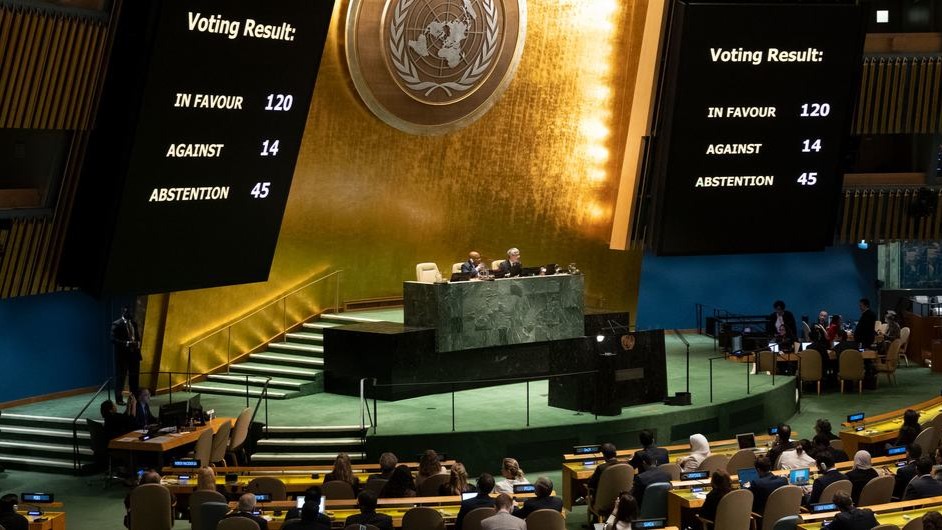International Isolation and Criticism

Eroding Global Support: The prolonged conflict, especially Israel’s control over Palestinians without a final peace, has gradually chipped away at Israel’s international standing. In the early decades, Israel often enjoyed broad sympathy (as a small state under siege), but as the occupation of the West Bank and blockade of Gaza stretch past 50+ years, criticism has mounted. Israel today faces constant diplomatic censure – for example, scores of UN resolutions have condemned aspects of its policies[1]. International human rights organizations frequently publish harsh reports about Israeli military operations or settlement expansion. Even allied countries have grown more openly critical when flare-ups cause civilian suffering. Each military campaign (Lebanon 2006, Gaza 2009, 2014, 2023, etc.) sparks global protests and negative media coverage. Over decades, this corrodes the reservoir of goodwill Israel once had and isolates it on the world stage. Israeli officials lament that their country is portrayed as a “pariah” in some forums, and indeed Israel often finds itself diplomatically lonely – sometimes only backed by a few allies in votes or having to rely on U.S. vetoes at the UN.
Strains with Allies and Partners: Continued conflict puts even close allies in a difficult position and has real diplomatic and economic fallout. European nations, for instance, are strong trade partners with Israel but face public pressure to take action against Israeli policies seen as oppressive. This has led the EU to, at times, limit certain agreements (like scientific cooperation that includes settlements)[3] and to issue sharp condemnations of Israeli actions. Relations with neighboring countries are also perennially tense – peace treaties with Egypt and Jordan remain cold, in large part due to the Palestinian issue, and further regional integration (even with new partners from the Abraham Accords) is hampered by ongoing violence. The recent Gaza war (2023) caused even Abraham Accord allies like the UAE and Bahrain to distance themselves and issue rebukes[5]. Notably, Saudi Arabia put normalization talks on hold when conflict escalated. Over the long term, if the status quo continues, Israel risks losing the chance for fuller regional acceptance and could see existing ties deteriorate.
Economic and Security Isolation: International isolation isn’t just political; it carries economic and security consequences. Israeli officials worry about the BDS (Boycott, Divestment, Sanctions) movement which, while not crippling yet, has slowly gained traction in civil society circles globally (academic boycotts, some investors shunning companies tied to settlements, etc.)[4]. Should Israel become more isolated, it might face trade restrictions or reduced foreign investment. Even security cooperation could be affected: for example, if European militaries or tech companies feel pressure not to collaborate with Israel due to human rights concerns. Israel’s valuable qualitative military edge historically relied on open channels with Western suppliers and partners. If isolation deepens, those channels could narrow. A report by an Israeli strategic institute cautions starkly that “Isolation and disconnection from the world will lead to severe economic damage, a significant drop in the standard of living, and harm to national security”[5]. In other words, without friends abroad, Israel would find it much harder to prosper or defend itself.
Legal and Moral Challenges Abroad: Another facet of international criticism is the growing legal challenges Israeli leaders and officers face. The International Criminal Court (ICC) has launched an investigation into alleged war crimes in the Palestinian territories[2]. Some Israeli officials fear traveling to certain countries where universal jurisdiction laws could be used to detain them. In 2023–24, unprecedented calls arose in the UN and elsewhere to hold Israel accountable under international law (e.g. inquiries into possible “apartheid” or genocide allegations in Gaza). Such charges were once unthinkable for a close Western ally, but prolonged conflict has normalized this discourse. The “lawfare” front is likely to intensify, potentially leading to arrest warrants (as the ICC prosecutor signaled in 2024)[2] or sanctions against Israeli officials. Beyond legalities, the moral image of Israel in the world has suffered: where it was once seen primarily as a haven for a persecuted people, it is now – in many quarters – equated with an occupier denying another people’s rights. This moral isolation can translate into real-world consequences, from young diaspora Jews disengaging, to foreign publics pushing their governments for tougher stances on Israel, all of which leaves Israelis feeling increasingly besieged and misunderstood abroad.
- From 2015–2023, the UN General Assembly passed over 140 resolutions critical of Israeli actions[1].
- In 2024, the ICC Prosecutor requested arrest warrants for top Israeli officials under suspicion of war crimes[2].
- EU Horizon 2020 research funding explicitly excludes Israeli institutions based in West Bank settlements[3].
- The BDS movement has driven more than 60 academic boycotts and dozens of financial divestments by church and university bodies[4].
- UAE, Bahrain, and Morocco all issued public criticism during the 2023 Gaza war, and Saudi normalization talks were suspended[5].
Image courtesy of Peoples Dispatch, licensed under CC BY-SA 4.0. Photo: United Nations/X.